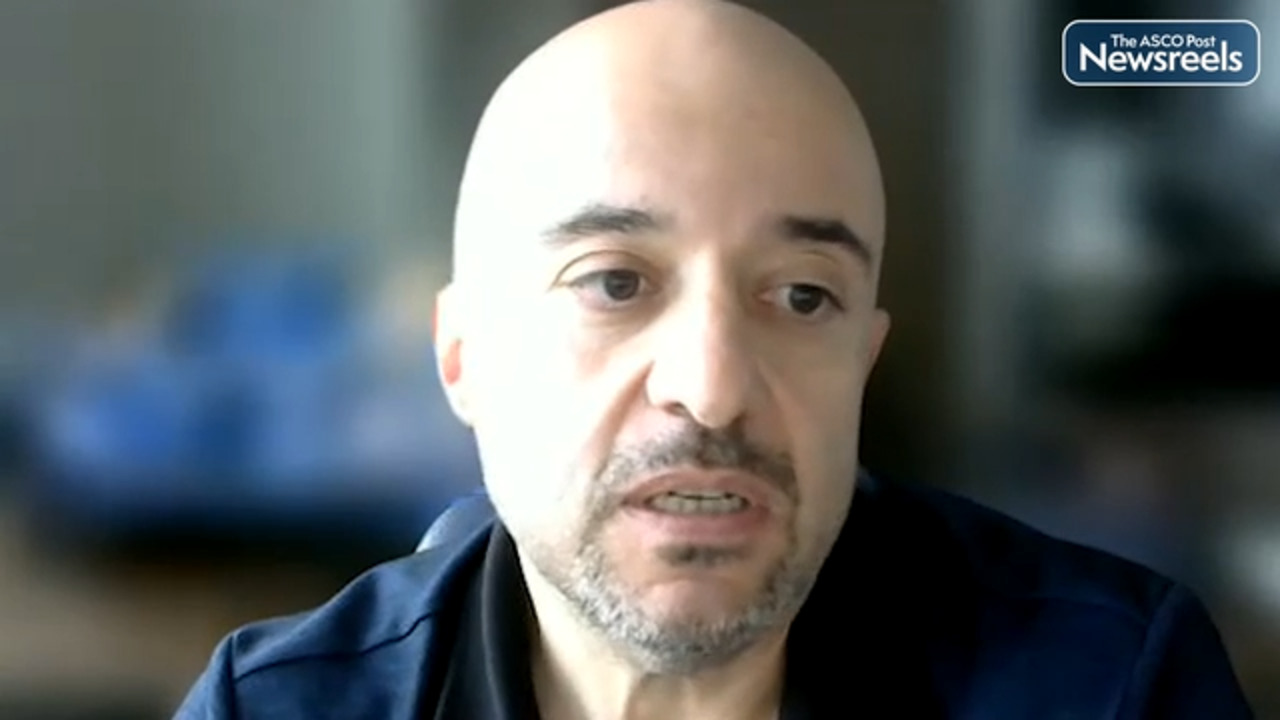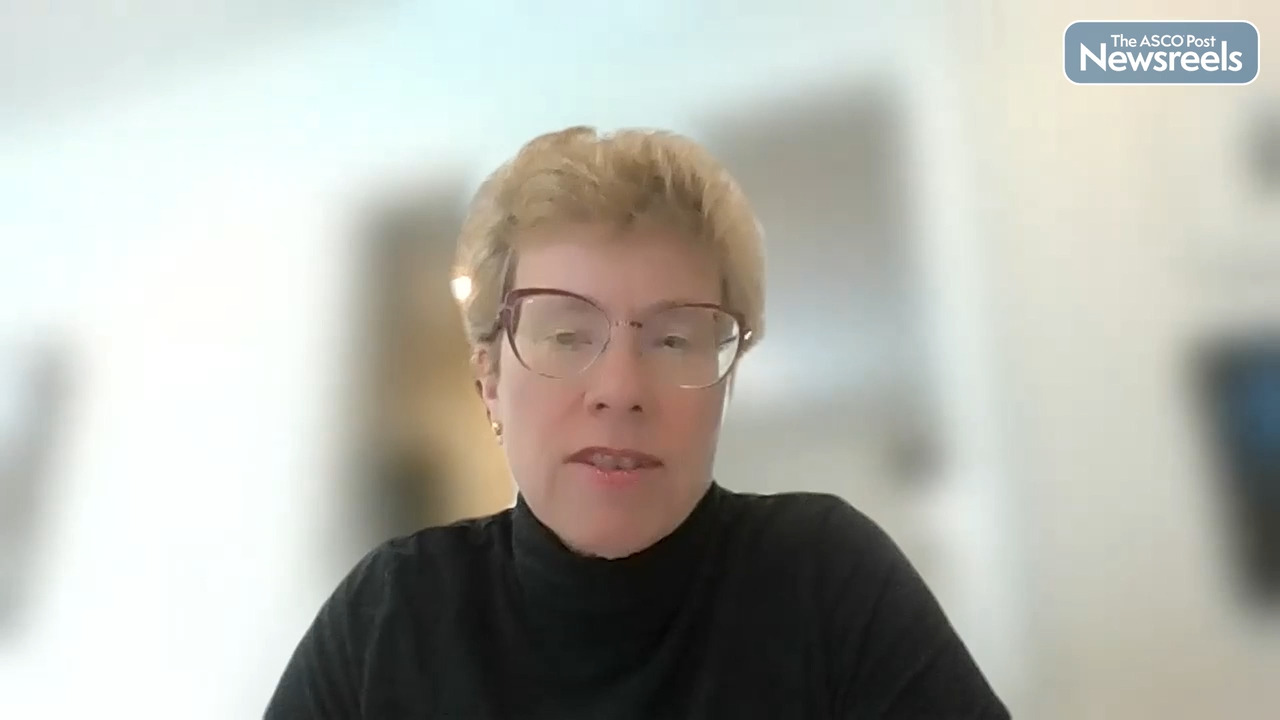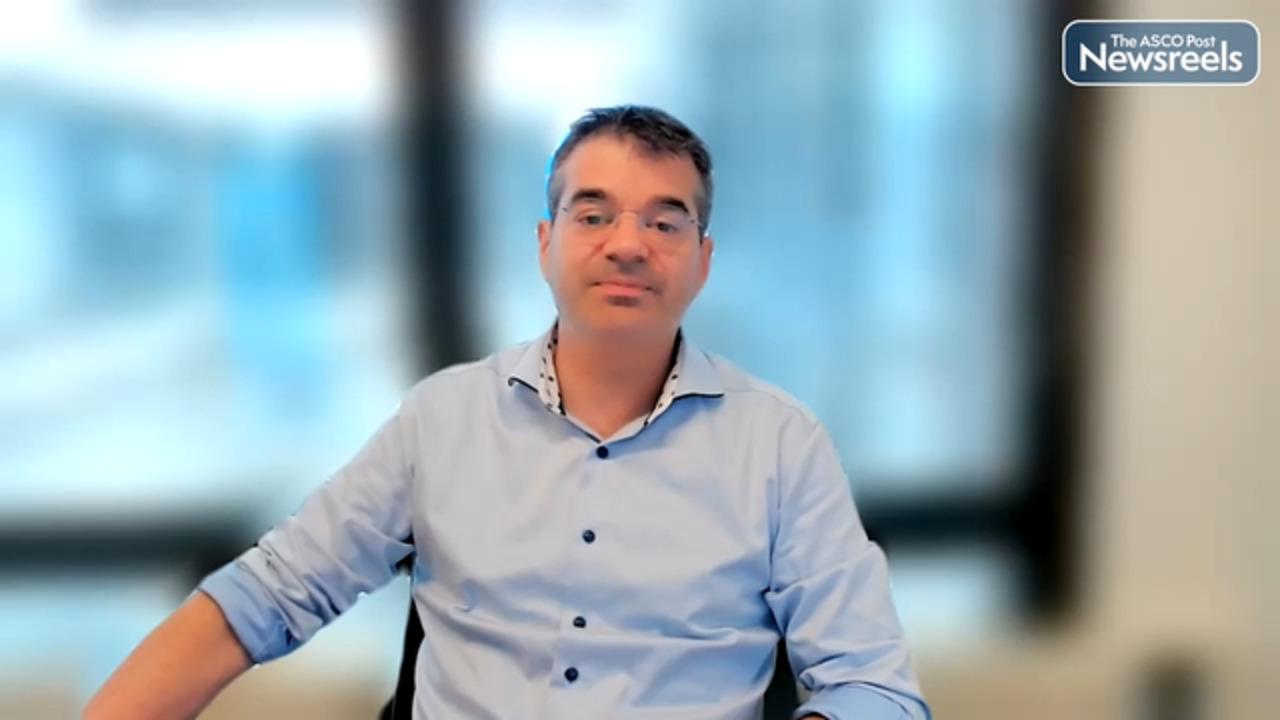Nicholas J. Short, MD, on Acute Lymphoblastic Leukemia: New Analysis of Ponatinib and Blinatumomab
EHA Hybrid Congress 2023
Nicholas J. Short, MD, of The University of Texas MD Anderson Cancer Center, discusses findings from a phase II study subgroup analysis that explored the question of whether ponatinib and blinatumomab, both active in Philadelphia chromosome–positive acute lymphoblastic leukemia, could offer an effective chemotherapy-free treatment for patients with newly diagnosed disease as well as reduce the need for allogeneic stem cell transplantation (Abstract S118).
Nicholas J. Short, MD, of The University of Texas MD Anderson Cancer Center, discusses new data on improved outcomes in patients with relapsed or refractory acute lymphoblastic leukemia who received the combination of mini-HCVD and reduced-dose inotuzumab and then blinatumomab in sequence. In mini-HCVD, cyclophosphamide and dexamethasone are administered with a 50% dose reduction, methotrexate with a 75% dose reduction, cytarabine with an 83% dose reduction, and anthracycline is omitted entirely. (Abstract S119)
The ASCO Post Staff
Rami S. Komrokji, MD, of Moffitt Cancer Center, discusses an assessment of new classifications for myeloid neoplasms and the ongoing efforts to harmonize these classifications, so researchers can better understand risk, outcomes, and survival among patients with genetically distinct types of the disease.
The ASCO Post Staff
Matthew J. Frank, MD, PhD, of Stanford University School of Medicine, discusses new findings showing that CD22 chimeric antigen receptor (CAR) T-cell therapy is an effective and safe salvage therapy for patients with CAR19-refractory large B-cell lymphoma. A multicenter phase II clinical trial is planned for 2023 (Abstract S230).
The ASCO Post Staff
Jennifer R. Brown, MD, PhD, of Dana-Farber Cancer Institute, discusses phase I/II findings from the Bruin study of resistance to pirtobrutinib in patients with covalent BTK inhibitor–pretreated chronic lymphocytic leukemia (CLL). The aim of the study was to explore the genomic evolution of resistance to this agent.
Arnon Kater, MD, PhD, of the University of Amsterdam Medical Centers, discusses results from the phase II VISION/HO141 trial of venetoclax plus ibrutinib in patients with relapsed or refractory chronic lymphocytic leukemia (CLL). For patients with undetectable measurable residual disease (MRD) after 15 cycles of treatment, treatment cessation with MRD-guided reinitiation was found to be a feasible approach.




